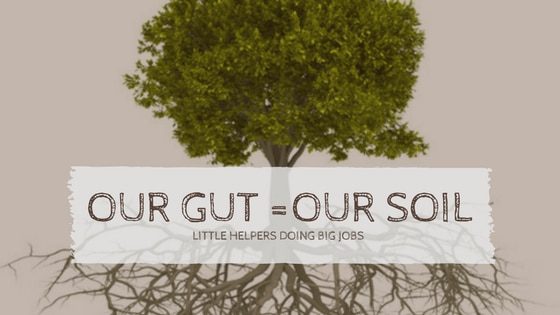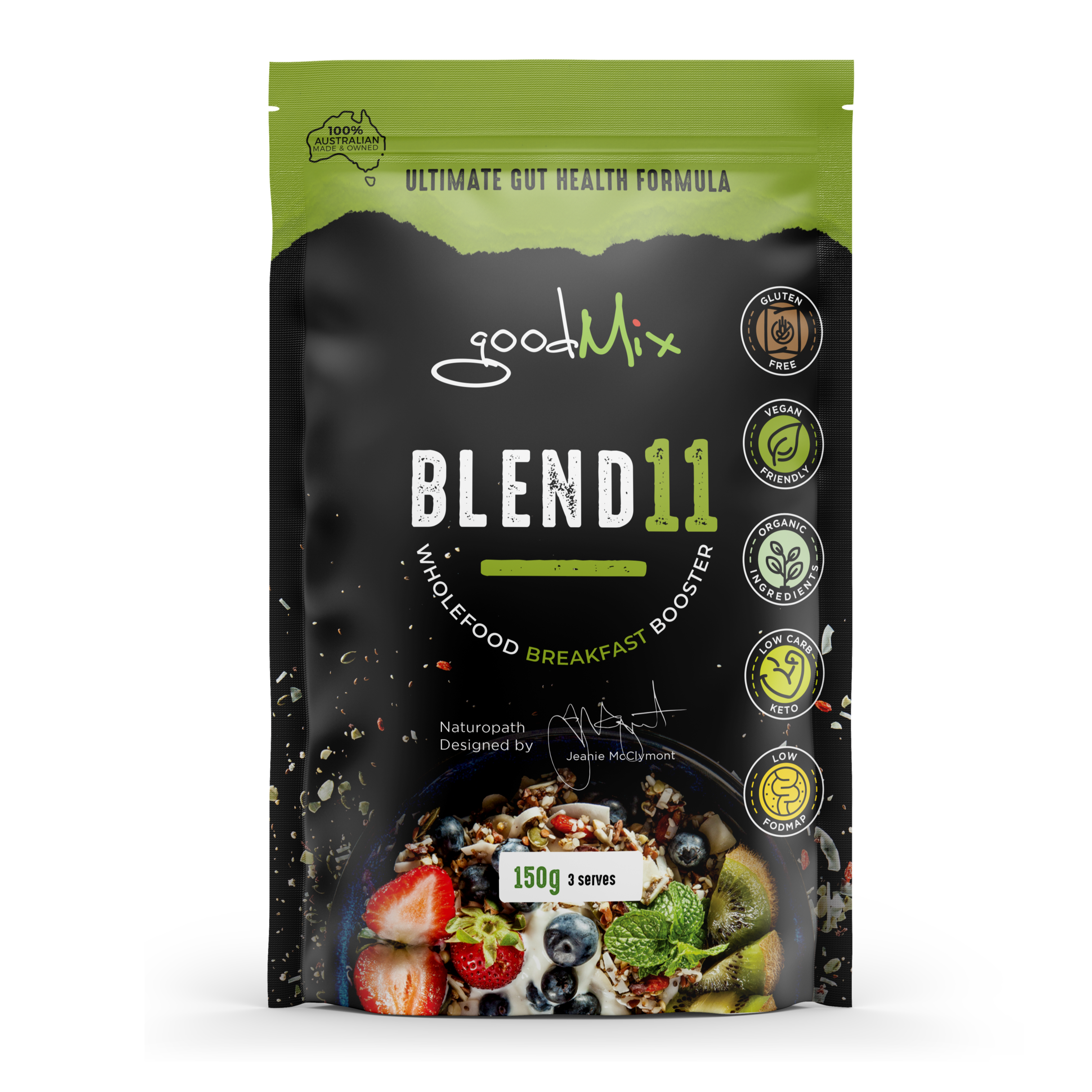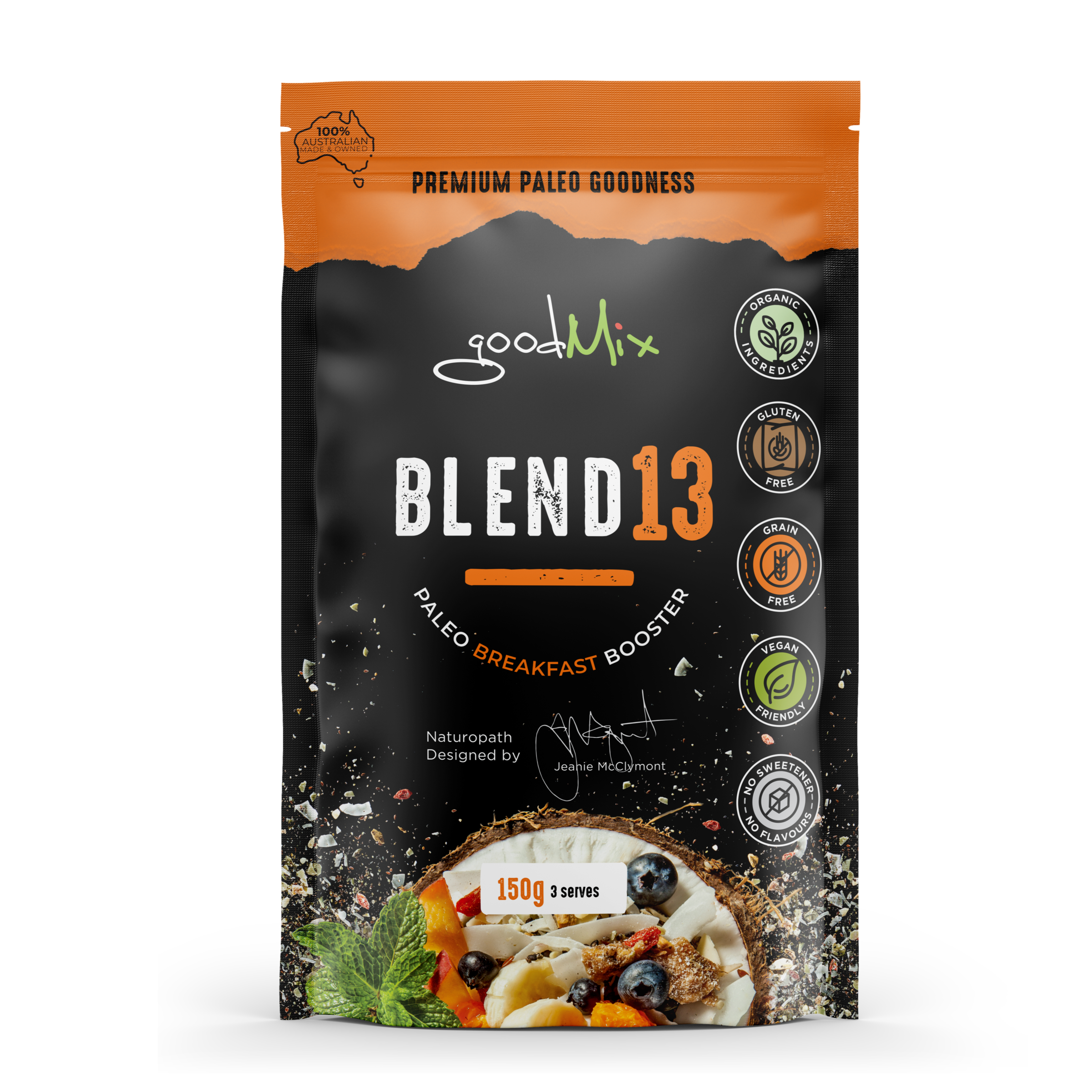
Our Gut = Our Soil
I stumbled upon this article last week & it made me think about the similarities between our gut & our soil - both so critical to support life & both sadly devastated by some of our modern ‘developments’ (things like agricultural chemicals, medications & highly processed foods).

Guts & Soil = Both Teeming With Life:
Just as your gut should be teeming with a diverse array of microbes, so should the soil surrounding a plant’s root system. You can think of plant roots & their surrounding microbial ecosystems kinda like ‘inside-out’ human guts.Balanced soil = Healthy Plants, Balanced Guts = Healthy Humans:
Humans grow & thrive & experience disease / deficiencies depending on (among other things) what is going on in their gut, & plants grow & thrive (or not) depending (among other things) upon what is going on with their soil. Soil balance = critical to plant health, gut balance = critical to human health.Little Helpers Doing Big Jobs:
Think of the similarities between our intestines with their huge surface area created by the villi & the microvilli (tiny projections that massively increase the surface area of our small intestines) & the branching root system of a plant with its fine root hairs. Both systems are a complex interface between the organism & it’s surrounding environment, & both function with close interaction & support from an amazing microbial ecosystem. Just as our gut microbes are vital for our immune function, chemical messaging around the body & the absorption of many nutrients, the microbes surrounding the roots of plants also play major roles in the function of the roots & how they support the plant. Two mind-blowing natural systems - we’re both extracting nutrition & communicating with what surrounds us, with the help of other tiny creatures that we cannot even see! Did you know that roots actually secrete their own prebiotics!? ’Root exudates’ provide a food source & attract beneficial microbes to live & feed around the plants root system, which in turn does great things for the plant nutritionally! The plant knows it needs microbes - so it provides them with a food source, just like the mucous layer in our gut - which can also feed some of our gut bugs.
Maybe You Need a Transplant?
We have to actively seek out & make an effort to ingest our required nutrition, whereas the plant just grows roots to absorb what it needs from its surroundings - which is the better design? Well a plant cannot just ‘up & leave’ if the soil environment is not supporting it adequately…but we humans can easily ‘transplant’ ourselves when we’re not thriving - i.e. we can totally change our ‘soil’ & its microbial support system just by changing what is flowing through our gut each day. Our food (& anything else that ends up in our gut) creates the ‘soil’ that supports us. If you have ever observed the change in a plant when you’ve transplanted it from an old pot that it had outgrown, into a freshly composted veggie garden full of nutrients & microbes…you’ll appreciate the difference that a change of soil can make. It’s much the same with humans that are not thriving on their current diet - you have to make some changes to their soil (the food & nutrients flowing through them) & try to get a thriving gut microbial ecosystem happening to help with the absorption of vital nutrients, as well as facilitating clear communication between the external environment & the immune system. The ‘ultimate’ in repotting / soil refreshing for an unhealthy human gut is an FMT (faecal microbe transplant), where they basically empty out all of your crappy dysfunctional ‘soil’, & replace it with some fresh ‘soil’ (someone else’s poo, squirted straight into your bowel, along with all the friendly & balanced microbes). Sounds pretty gross, but the results can be incredible (with a caution that we can also create new problems that we’re not even fully aware of yet). When you consider all the functions of our gut microbiome - the potential for this type of ‘transplant’ therapy to both help cure & cause health issues is huge. Understandably, researchers are proceeding with caution.Gut & Garden Rehabilitation:
When rehabilitating your garden or your gut, you may need to do the following:- remove any nasty weeds that have taken over, being mindful that some seeds will always remain & maintenance will be required to prevent them from growing back to dominate the area. (Think about a detrimental overgrowth of parasites, fungi, nasty bacteria etc in our guts - we may need to ‘weed’ the gut garden with some anti-microbial / anti-fungal / anti-parasitic herbs & supplements & a restrictive diet as part of the gut rehab process).
- bring in some healthy new soil ingredients! In humans we need to change what is being swallowed daily, this is one of the major contributors to achieving soil (gut) health. Think mainly about food, but also about medications, environmental chemicals, supplements, hydration…even hormones & emotions…everything that ‘flows through you’ contributes to (or takes away from) your soil health. Really important to stop feeding those nasty microbes what they love (usually sugars & refined starches for the baddies). Feed the goodies so they populate quickly & crowd out the baddies, just like we can plant & nurture a lovely ground cover to stop unwanted weeds from growing back. Our good bugs love fibre & resistant starch, feed them plenty so they’ll grow & take up all the space & resources, leaving none for the baddies / gut weeds!
- reinoculate & support with some microbial reinforcements. In a garden you can add some microbe-rich compost & manure. You can add mulch to stabilise moisture & temperature / slow down the growth of unwanted weeds / create a safe haven for beneficial creatures that are part of the soil ecosystem. Mulch will also eventually act as a food source that can be broken down & converted by creatures into more organic matter for the soil & it’s microbes. Adding compost & mulch to a garden is just like a human adding plenty of organic, fibrous plant foods & some fermented foods into their diet. What a difference it can make, getting that internal soil to start ‘teeming’ with microbes again, like an internal compost system that keeps cranking out awesome ‘compost’ (or healthy poos).
- daily intake of diverse fibre = a continuous stream of food to support a wide range of good gut bugs. Without adequate fibre, some of our gut bugs actually start eating away at our protective mucous lining to survive, not a nice thought!
- water that garden: Your internal soil will dry up & your gut bugs will shrivel if you’re not well hydrated - just like a plant cannot survive & thrive without the moisture required to help it absorb nutrients from the soil & keep it’s microbial helpers comfortable.
- keep the chemicals out. Chemicals flowing through your gut will mess with the ‘soil’ ecology, just as chemicals sprayed continually into a forest can seriously damage the ecosystem. Eat as much as you can organic, & avoid unnecessary medications / ask your Dr what you can eliminate (or find a functional / integrative GP / naturopath to work with you to minimise your intake of pharmaceuticals).




